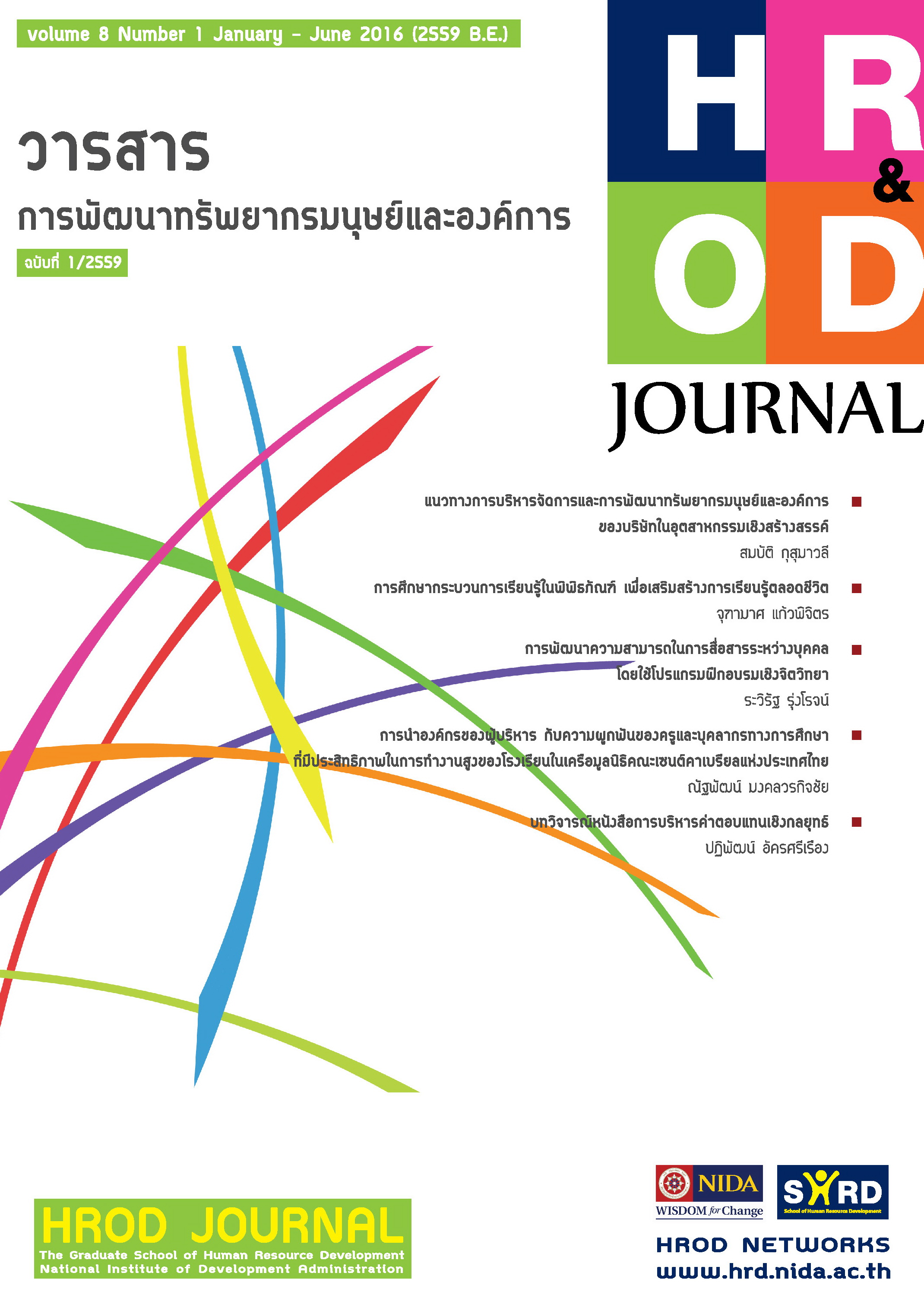The Study of Learning Process in Museum to Support Lifelong Learning
Main Article Content
Abstract
This research aims to study the way to develop museum into discovery museum and to study learning process of curators in the development to discovery museum. The sample in this study comprises 19 curators from four museums which are Wat Fang Khlong Folk Museum in Nakhon Nayok, Under Phetchaburi River Museum in Petchaburi, Ban Khao Yi San Museum in Samut Songkram and King Rama II Memorial Park in Samut Songkram as well. The study has been performed with an action research under the natural critical learning environment containing 4 stages; 1) engage, 2) explore, 3) explain, and 4) apply together with the developmental frame of National Discovery Museum Institute – NDMI.
The research shows that learning process of curators in the development to discovery museum is different. The development of learning process is then in official and unofficial patterns through eight methods which are 1) guided observation 2) inquiry based learning 3) workshop 4) conceptual presentation about discovery museum 5) discovery museum knowledge model 6) coaching 7) video of international model museum and 8) QR code knowledge. The skill improvement of curators both in official and unofficial ways helps them to be able to apply the obtained knowledge and skill to their museum. The equipment of museum development into the discovery one has also been created. This is to develop the museum under their care to be an encouragement for an unofficial learning aspiration in a community e.g. the arrangement of learning map for visitors, the performance adjustment for visitors’ attraction, the creation of QR code equipment for museum-information presentation in guideline and the equipment for an online knowledge transfer.
According to the findings, curators should be able to provide various and appropriate learning patterns to target group in order to support an experience and encourage visitors to link with prior knowledge, create a relationship between an exhibition and visitors into a learning experience apart from the knowledge showing through the exhibition.
Article Details
1) The content of article in HROD journal is the author’s wholly responsibility to research, analyze, summarize, compile, and reference data. The editorial department will not be responsible in anyway.
2) The submitted articles in HROD journal must be unpublished before and must not be currently under consideration for publication elsewhere. If it is detected for its repetition, the author must be responsible for infringement of copyright.
3) Authors will be asked to transfer copyright of the article to the Publisher. The article is prohibited to reproduce all or part of the text, unless allowed.


